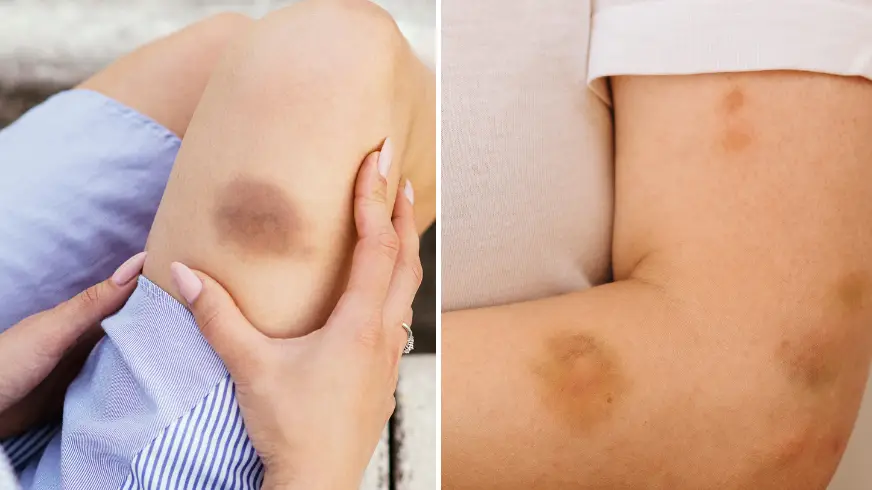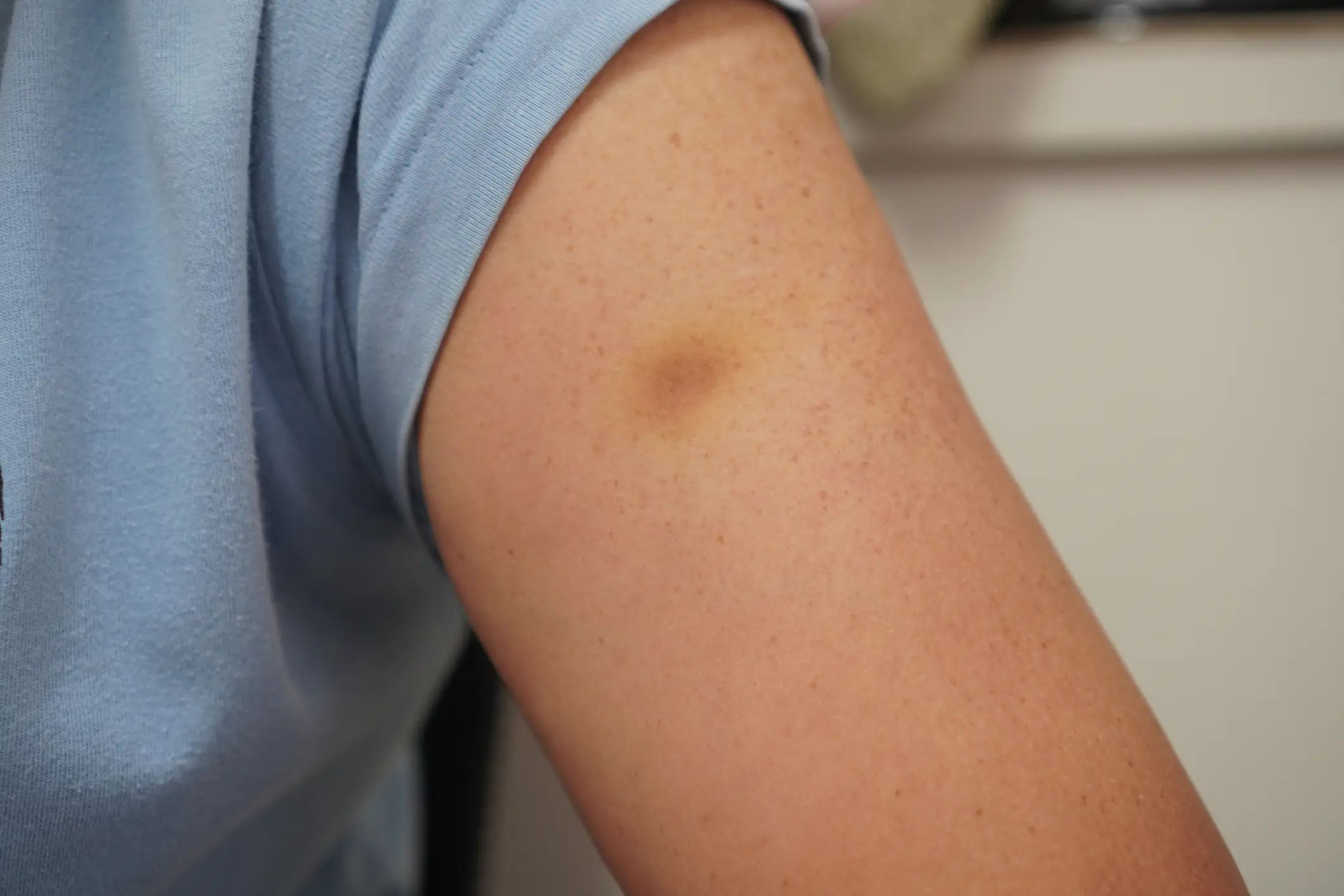
Ever just been minding your own business only to notice a dark purple patch on your thigh?
Or maybe it's a more reddy hue located on your wrist? Or even a sprawling green mark wrapped across your shin?
Well, it seems many of us - myself definitely included - discover these mystery bruises all over our bodies without a clue on how they even got there in the first place.
So, to help shine some light on the bizarre bodily phenomenon, a doctor has revealed exactly why you're bruising like a peach and what to do about it.
Advert

What causes a bruise?
Dr Claire Merrifield, a GP and medical director at Selph, told Tyla that bruises are caused by capillaries breaking under the skin and releasing blood.
"They usually occur after an injury such as a fall or knocking a limb against something which causes enough force to break the capillaries," she continued.
After this, the body quickly works to 'plug the holes' of these broken capillaries and stop any blood leaking out.
Medication
"Some medications, such as blood thinners, aspirin and some antibiotics and antidepressants can increase bruising," the doctor warned.
She added that 'any medication that makes you very sleepy' can also make you more prone to knocking into things and therefore increase bruising.
"If you think your medication might be causing you to bruise, speak with your doctor before making any changes," Dr Merrifield advised.

Alcohol
The doc told us that 'excess alcohol consumption' can have a major affect on your liver function.
This can therefore lead to 'frequent bruising' as the liver is important in preventing and healing bruises.
Nutrition
Dr Merrifield said: "Nutritional deficiencies, such as low levels of vitamin C or vitamin K, can also contribute to someone bruising more easily."
Vitamin C is important for maintaining the strength of the skin and blood vessels while Vitamin K is 'essential' to make what we call clotting factors - these help us stop bleeding when we cut ourselves.
The GP highlighted: "There aren’t any good tests for these vitamins so it’s important to ensure you’re getting enough fruits and vegetables in your diet and consider supplements if you aren’t."

Periods
And it's not just medicine, alcohol and nutrition which could be the culprit as to why you're covered in bruises as periods can be having a significant impact too.
"Sometimes women who are prone to heavy periods also experience bruising with quite minor injuries, this is usually nothing to worry about but it’s something to discuss with your doctor," Dr Merrifield added.
Age
And last but not least is age.
The expert told us that it's a simple fact of life that 'as we get older, we bruise more easily' which makes age a super common factor when it comes to bruising. She added: "As we age, the skin becomes thinner which makes blood vessels more fragile, and therefore more prone to bruising."
Above all, Dr Merrifield stresses that anyone who has new, unexplained or unusual bruising should speak to their doctor as soon as possible.
"If you're concerned about frequent, easy or unexplained bruising, especially if it's a new development, it’s important to speak to your GP as soon as possible," Dr Merrifield advised.
"They’ll be able to assess your overall health and will likely do some blood tests to determine if any underlying conditions are contributing to the bruising."